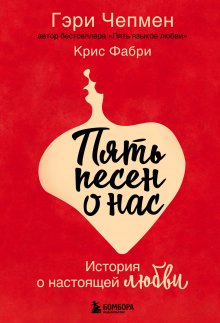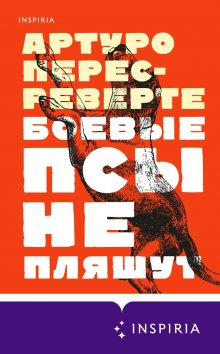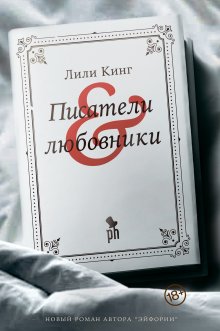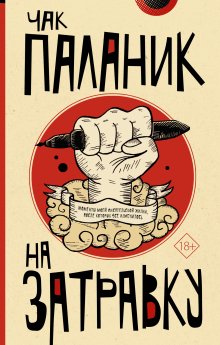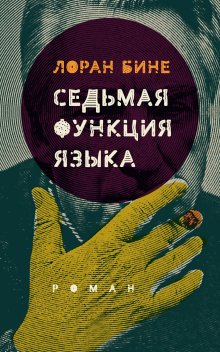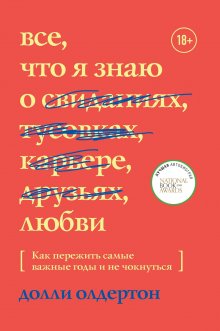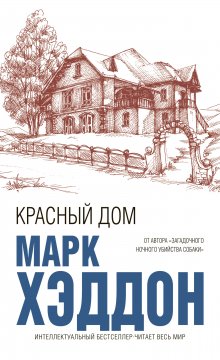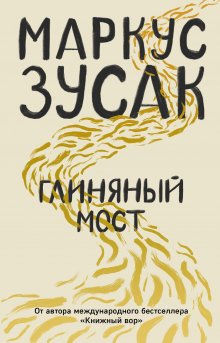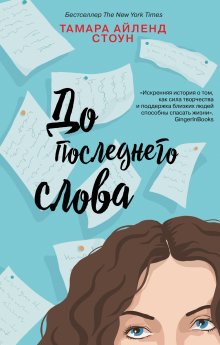Джоанн Харрис - Five Quarters of the Orange / Пять четвертинок апельсина
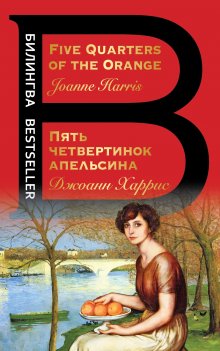
Все авторские права соблюдены. Напишите нам, если Вы не согласны.
Описание книги "Five Quarters of the Orange / Пять четвертинок апельсина"
Описание и краткое содержание "Five Quarters of the Orange / Пять четвертинок апельсина" читать бесплатно онлайн.
“Dunno,” I said at last. “Just for something to do, I expect.”
He laughed.
“That’s you, Boise,” he said between gusts of laughter. “That’s you all over, that is. Catch Old Mother for something to do!”
And he was off again, rolling alarmingly close to the edge of the platform in his incomprehensible hilarity until Malabar, tied with string at the foot of the tree, began to bark sharply and we fell silent before our cover was blown.
5
Soon after that, I found the lipstick under Reine-Claude’s mattress. A stupid place to hide it, really-anyone could have found it, even Mother-but Reinette was never imaginative. It was my turn to make the beds, and the thing must have worked its way under the bottom sheet, because that was where I found it, tucked between the lip of the mattress and the bedboard. At first I didn’t recognize it. Mother never used makeup. A small golden cylinder, like a stubby pen. I turned the cap, encountered resistance, opened. I was experimenting rather gingerly on my arm when I heard a gasp behind me and Reinette jerked me round. Her face was pale and contorted.
“Give me that!” she hissed. “That’s mine!”
She snatched the lipstick from my fingers and it fell to the floor, rolling under the bed. Quickly she scrabbled to retrieve it, her face flaring.
“Where did you get that?” I asked curiously. “Does Mother know you’ve got it?”
“None of your business,“ gasped Reinette, emerging from under the bed. ”You’ve no right to go snooping in my private things. And if you dare tell anyone-“
I grinned. “I might tell,” I told her. “And I might not. It just depends.”
She took a step forward, but I was almost as tall as she was, and though rage had made her reckless, she knew better than to try to fight me.
“Don’t tell,” she said in a wheedling voice. “I’ll go fishing with you this afternoon, if you like. We could go to the Lookout Post and read magazines.”
I shrugged. “Maybe. Where did you get it?”
Reinette looked at me.
“Promise you won’t tell.”
“I promise.”
I spat in my hand. After a moment’s hesitation she followed suit. We sealed the bargain with a spit-clammy handshake.
“All right.” She sat down on the edge of the bed, legs curled underneath her. “It was at school. In spring. We had a Latin teacher there, Monsieur Toubon. Cassis calls him Monsieur Toupet because he looks as if he wears a wig. He was always getting at us. He was the one who made the whole class stay in that time. Everybody hated him.”
“A teacher gave it to you?” I was incredulous.
“No, stupid. Listen. You know the Boches requisitioned the lower and middle corridors and the rooms around the courtyard. You know, for their quarters. And their drilling.”
I’d heard this before. The old school, with its location near the center of Angers, its large classrooms and enclosed playgrounds, was ideal for their purposes. Cassis had told us about the Germans on maneuvers with their gray cow’s-head masks, how no one was allowed to watch and the shutters had to be closed around the courtyard at those times.
“Some of us used to creep in and watch them through a slit under one of the shutters,” said Reinette. “It was boring, really. Just a lot of marching up and down and shouting in German. Can’t see why it all has to be so secret.” Her mouth drooped in a moue of dissatisfaction. “Anyway, old Toupet caught us at it one day,” she continued. “Gave us all a big lecture, Cassis and me and… oh, people you wouldn’t know. Made us miss our free Thursday afternoon. Gave us a whole lot of extra Latin to do.” Her mouth twisted viciously. “I don’t know what makes him so holy anyhow. He was only coming to watch the Boches himself.” Reinette shrugged. “Anyway”-she continued in a lighter voice-“we managed to get him back eventually. Old Toupet lives in the collège-he has rooms next to the boys’ dorm-and Cassis looked in one day when Toupet was out, and what do you think?”
I shrugged.
“He had a big radio in there, pushed under his bed. One of those long-wave contraptions.”
Reinette paused, looking suddenly uneasy.
“So?”
I looked at the little gold stick between her fingers, trying to see the connection.
She smiled, an unpleasantly adult smile.
“I know we’re not supposed to have anything to do with the Boches. But you can’t avoid people all the time,” she said in a superior tone. “I mean, you see them at the gate, or going into Angers to the pictures…”
This was aprivilege I greatly envied Reine-Claude and Cassis-that on Thursdays they were allowed to cycle into the town center to the cinema or the café-and I pulled a face.
“Get on with it,” I said.
“I am,” complained Reinette. “God, Boise, you’re so impatient…” She touched her hair. “As I was saying, you’re bound to see Germans some of the time. And they’re not all bad.” That smile again. “Some of them can be quite nice. Nicer than old Toupet, anyway.”
I shrugged indifferently.
“So one of them gave you the lipstick,” I said with scorn.
Such a fuss over so little, I thought to myself. It was just like Reinette to get so excited about nothing at all.
“We told them-well, we just mentioned to one of them-about Toupet and his radio,” she said. For some reason she was flushed, her cheeks bright as peonies. “He gave us the lipstick, and some cigarettes for Cassis, and… well, all kinds of things.” She was speaking rapidly now, unstoppably, her eyes bright. “And later Yvonne Cressonnet said that she saw them come to old Toupet’s room, and they took the radio away, and he went with them, and now instead of Latin we have an extra geography lesson with Madame Lambert, and no one knows what’s happened to him!”
She leveled her gaze at me. I remember her eyes were almost gold, the color of boiling sugar syrup as it begins to turn.
I shrugged. “I don’t suppose anything happened,” I said reasonably. “I mean, they wouldn’t send an old man like that to the front just for having a radio.”
“No. Course they wouldn’t.” Her reply was too hasty. “Besides, he shouldn’t have had it in the first place, should he?”
I agreed he shouldn’t. It was against the rules. A teacher should have known that. Reine looked at the lipstick, turning it gently, lovingly in her hand.
“You won’t tell, then?” She stroked my arm gently. “You won’t, will you, Boise?”
I pulled away, rubbing my arm automatically where she had touched me. I never did like being petted.
“Do you and Cassis see these Germans often?” I questioned.
She shrugged. “Sometimes.”
“D’you tell them anything else?”
“No.” She spoke too quickly. “We just talk. Look, Boise, you won’t tell anyone, will you?”
I smiled. “Well, I might not. Not if you do something for me.”
She looked at me narrowly.
“What do you mean?”
“I’d like to go into Angers sometimes, with you and Cassis,” I said slyly. “To the pictures, and the café, and stuff…”
I paused for effect and she glared at me from eyes as bright and narrow as knives.
“Or,” I continued in a falsely holy tone, “I might tell Mother that you’ve been talking to the people who killed our father. Talking to them and spying for them. Enemies of France. See what she says to that.”
Reinette looked agitated.
“Boise, you promised!”
I shook my head solemnly.
“That doesn’t count. It’s my patriotic duty.”
I must have sounded convincing. Reinette turned pale. And yet the words themselves meant nothing to me. I felt no real hostility to the Germans. Even when I told myself that they had killed my father, that the man who did it might even be there, actually there in Angers, an hour’s cycle ride down the road, drinking Gros-Plant in some bar-tabac and smoking a Gauloise. The image was clear in my mind, and yet it had little potency. Perhaps because my father’s face was already blurring in my memory. Perhaps in the same way that children rarely get involved in the quarrels of adults, and that adults rarely understand the sudden hostilities that erupt for no comprehensible reason between children. My voice was prim and disapproving, but what I really wanted had nothing to do with our father, France or the war. I wanted to be involved again, to be treated as an adult, a bearer of secrets. And I wanted to go to the cinema, to see Laurel and Hardy or Bela Lugosi or Humphrey Bogart, to sit in the flickering dark with Cassis on one side and Reine-Claude on the other, maybe with a cone of chips in one hand or a strip of licorice…
Reinette shook her head. “You’re crazy,” she said at last. “You know Mother would never let you go into town on your own. You’re too young. Besides-”
“I wouldn’t be on my own. You or Cassis could take me on the back of your bike,”
I continued stubbornly. She rode my mother’s bike. Cassis took Father’s bike to school with him, an awkward black gantrylike thing. It was too far to walk, and without the bikes they would have had to board at the collège, as many country children did.
“Term’s nearly over. We could all go into Angers together. See a film. Have a look round.”
My sister looked mulish.
“She’ll want us to stay home and work on the farm,” she said. “You’ll see. She never wants anyone to have any fun.”
“The number of times she’s been smelling oranges recently,” I told her practically, “I don’t suppose it will matter. We could sneak off. The way she is, she’ll never even know.”
It was easy. Reine was always easy to move. Her passivity was an adult thing, her sly, sweet nature hiding a kind of laziness, almost of indifference. She faced me now, throwing her last weak excuse at me like a handful of sand.
“You’re crazy!”
In those days everything I did was crazy to Reine. Crazy for swimming underwater, for teetering at the top of the Lookout Post on one leg, for answering back, for eating green figs or sour apples.
I shook my head.
“It’ll be easy,” I told her firmly. “You can count on me.”
6
You see from what innocent beginnings it grew. We none of us meant for anyone to be hurt, and yet there is a hard place in the center of me that remembers implacably and with perfect precision. My mother knew the dangers before any of us did. I was sweaty and unstable as dynamite. She knew it, and in her strange way she tried to protect me by keeping me close, even when she would have preferred otherwise. She understood more than I imagined.
Not that I cared-I had a plan of my own, a plan as intricate and carefully laid as my pike traps on the river. I once thought Paul might have guessed, but if he did, he never spoke a word. Small beginnings, leading to lies, deceit and worse.
It began with a fruit stall, one Saturday market day. July 4 it was, the day after my ninth birthday.
It began with an orange.
7
Until then I had always been judged too young to go into town on market days. My mother would arrive in Angers at nine and set up her little stall by the church. Quite often Cassis or Reinette would accompany her. I stayed behind at the farm, supposedly to do chores, though I usually spent the time by the river, fishing, or in the woods with Paul.
But that year was different. I was old enough now to make myself useful, she told me in her brusque way. Couldn’t stay a little girl forever. She looked at me once, searchingly. Her eyes were the color of old nettles. Besides-casually, without giving the impression of a favor conferred-I might want to go into Angers later that summer, maybe to the cinema, with my brother and sister…
I guessed then that Reinette must have been at work. No one else could have persuaded her. But Reinette knew how to cajole her. Hard she might be, but I thought there was a softer look in her eyes when she spoke to Reinette, as if beneath her gruff exterior something was moved. I mumbled something graceless in reply.
“Besides,” continued my mother, “maybe you need a little responsibility. Keep you from running wild. Teach you something about what matters in life.”
I nodded, trying for some of Reinette’s docility.
I don’t think my mother was fooled. She raised a satirical eyebrow.
“You can help me on the stall,” she said.
And so, for the first time, I accompanied her into town. We rode in the trap together, with our goods packed into boxes beside us and covered with tarpaulin. We had cakes and biscuits in one box, cheeses and eggs in another, fruit in the rest. It was early in the season, and though the strawberries had been good, there was little else ready. We supplemented our income by selling jam, sugared with last year’s autumn beets, before the season really began.
Angers was busy on market day. Carts crammed axle to axle in the main street, bicycles pulling wicker baskets, a small open-topped wagon laden with churns of milk, a woman carrying a tray of loaves on her head, stalls piled high with greenhouse tomatoes, eggplants, zucchini, onions, potatoes. Here a stall sold wool or pottery; there wine, milk, preserves, cutlery, fruit, secondhand books, bread, fish, flowers. We settled early. There was a fountain beside the church where the horses could drink, and it was shady. My job was to wrap the food and hand it to the customers while my mother took the money. Her memory and speed of calculation were phenomenal. She could add a list of prices in her head without ever having to write them down, and she never hesitated over change. Notes in one side, coins in the other, she kept the money in the pockets of her smock, then the surplus went into an old biscuit tin she kept under the tarpaulin. I remember it still: pink, with a pattern of roses around the rim. I remember the coins and notes as they slid against the metal-my mother didn’t believe in banks. She kept our savings in a box under the cellar floor, along with the more valuable of her bottles.
That first market day we sold all the eggs and all the cheeses within an hour of arrival. People were aware of the soldiers standing at the intersection, guns crooked casually into the elbow, faces bored and indifferent. My mother caught me staring at the gray uniforms and snapped me sharply to attention.
“Stop that gawking, girl.”
Even when they came through the crowd we had to ignore them, though I could feel my mother’s restraining hand on my arm. A tremor went through her as he stopped in front of our stall, but her face remained impassive. A stocky man with a round, red face, a man who might have been a butcher or a wine merchant in another life. His blue eyes shone gleefully.
“Ach, welche schöne Erdbeeren.” His voice was jovial, slightly beery, the voice of a lazy man on holiday. He took a strawberry between plump fingers and popped it into his mouth. “Schmeckt gut, ja?” He laughed, not unkindly. His cheeks bulged. “Wu-n-der-schön gut!” He pantomimed rapture, rolling his eyes comically at me. In spite of myself I smiled.
My mother gave my arm a warning squeeze. I could feel nervous heat burning from her fingers. I looked at the German once more, trying to understand the source of her tension. He looked no more intimidating than the men who came to the village sometimes-less so, in fact, with his peaked cap and his single pistol in its holster at his side. I smiled again, more in defiance of my mother than for any other reason.
Подписывайтесь на наши страницы в социальных сетях.
Будьте в курсе последних книжных новинок, комментируйте, обсуждайте. Мы ждём Вас!
Похожие книги на "Five Quarters of the Orange / Пять четвертинок апельсина"
Книги похожие на "Five Quarters of the Orange / Пять четвертинок апельсина" читать онлайн или скачать бесплатно полные версии.
Мы рекомендуем Вам зарегистрироваться либо войти на сайт под своим именем.
Отзывы о "Джоанн Харрис - Five Quarters of the Orange / Пять четвертинок апельсина"
Отзывы читателей о книге "Five Quarters of the Orange / Пять четвертинок апельсина", комментарии и мнения людей о произведении.






